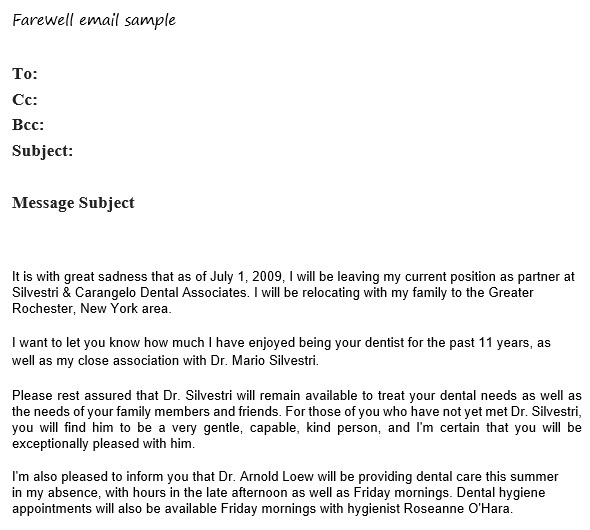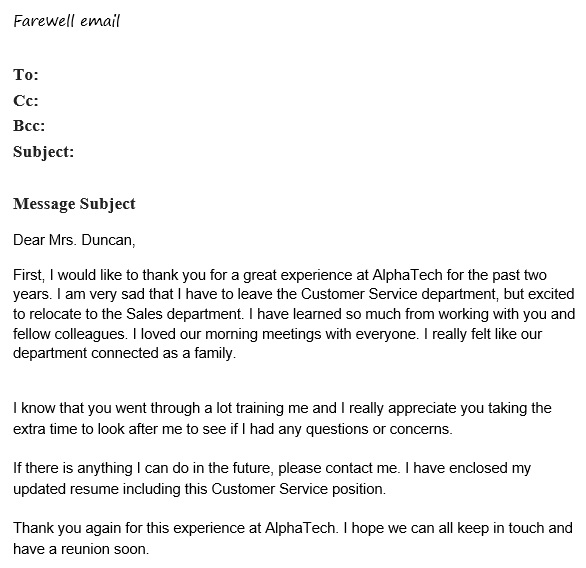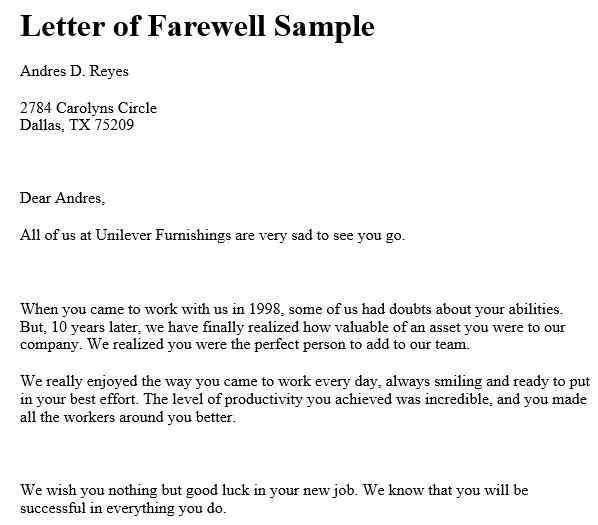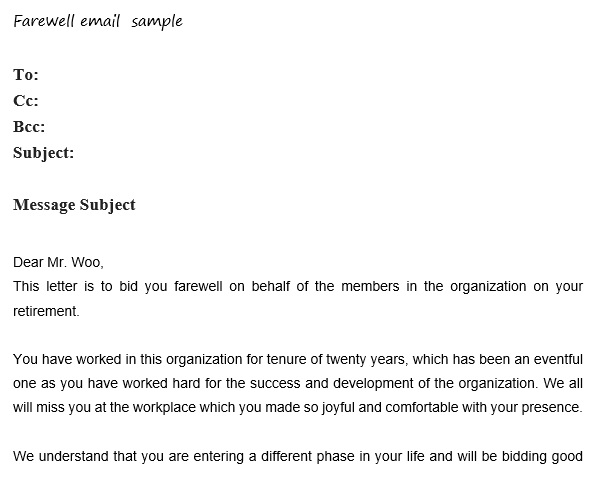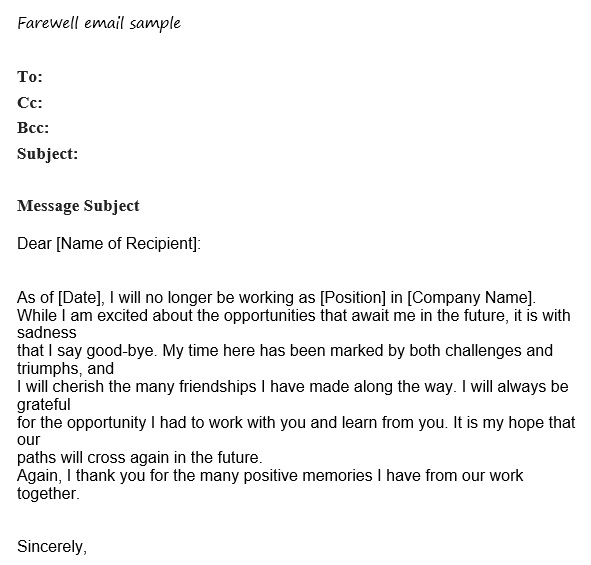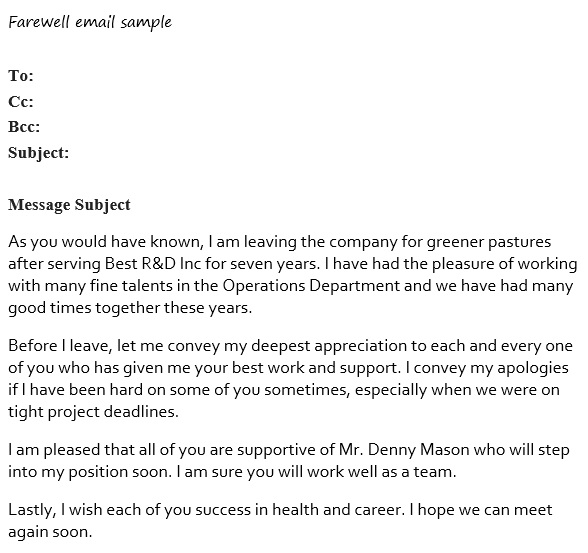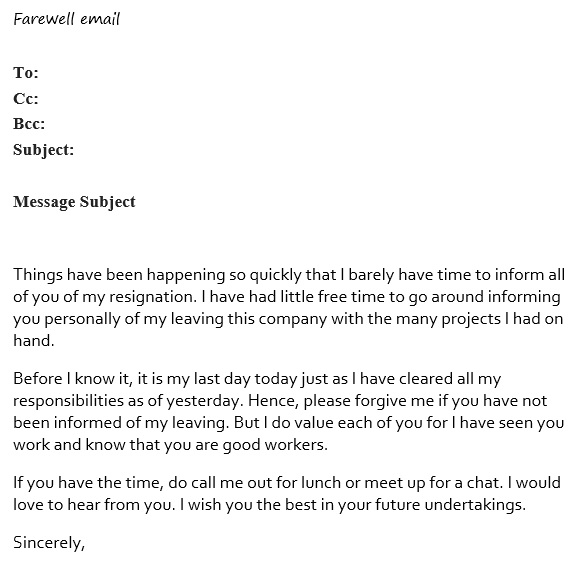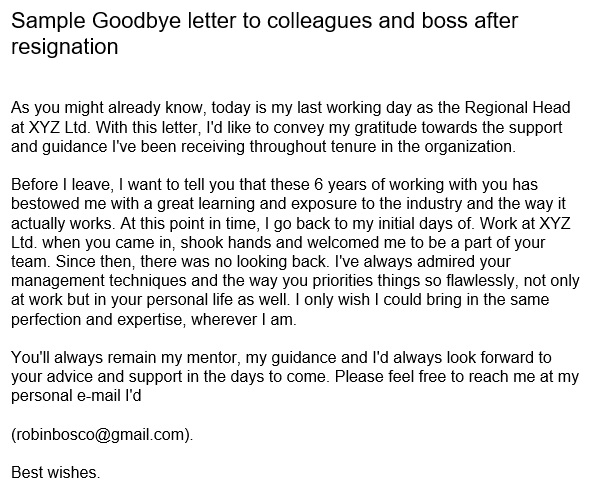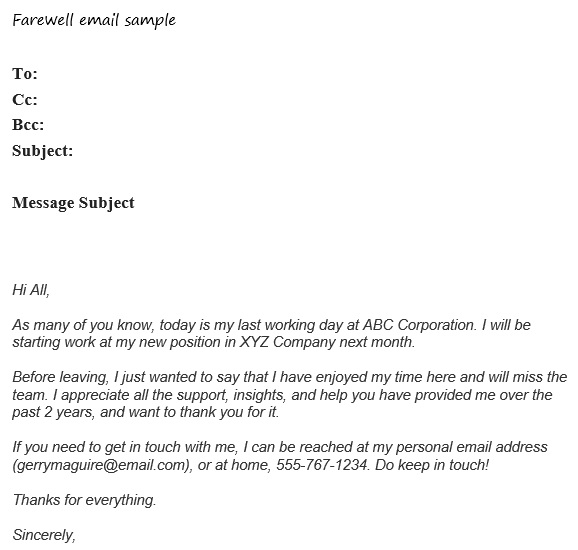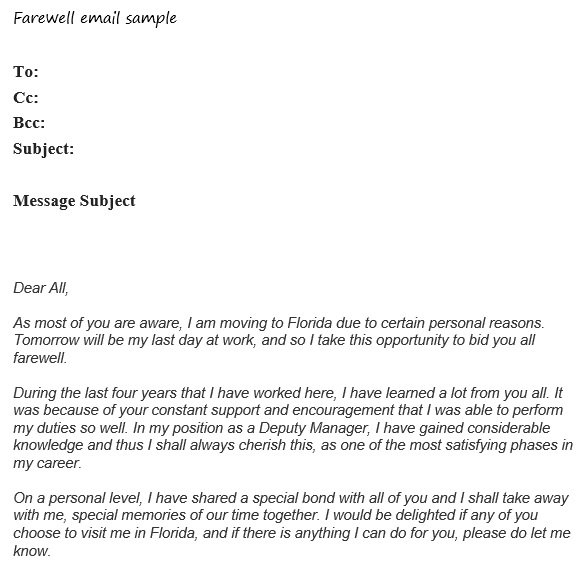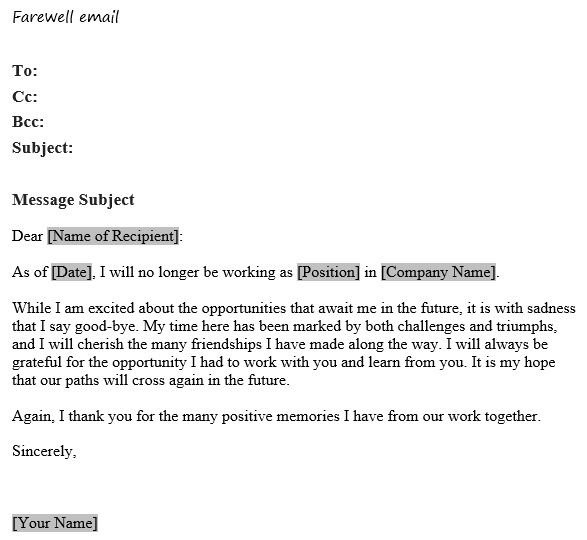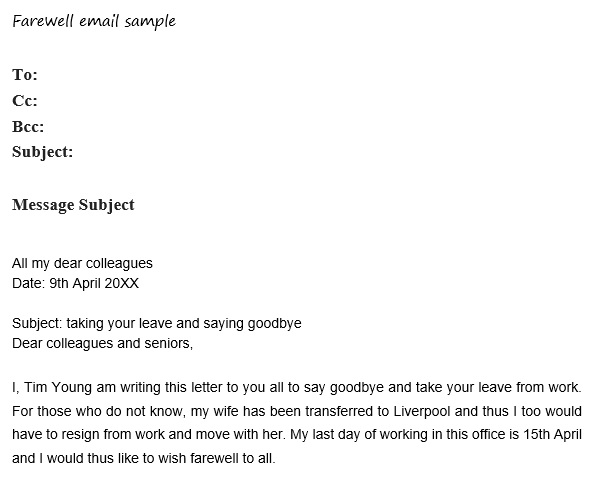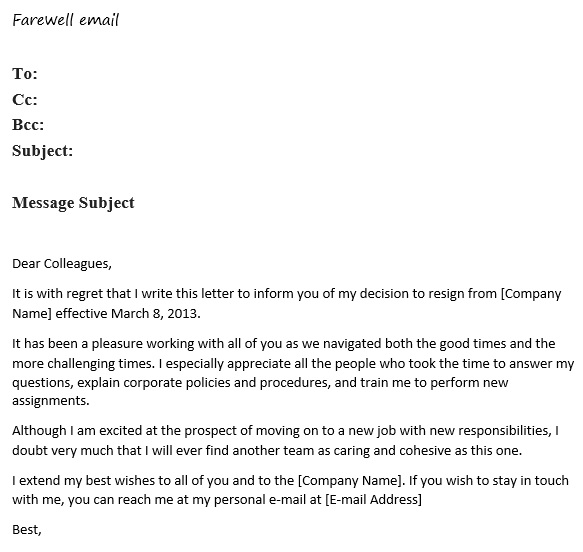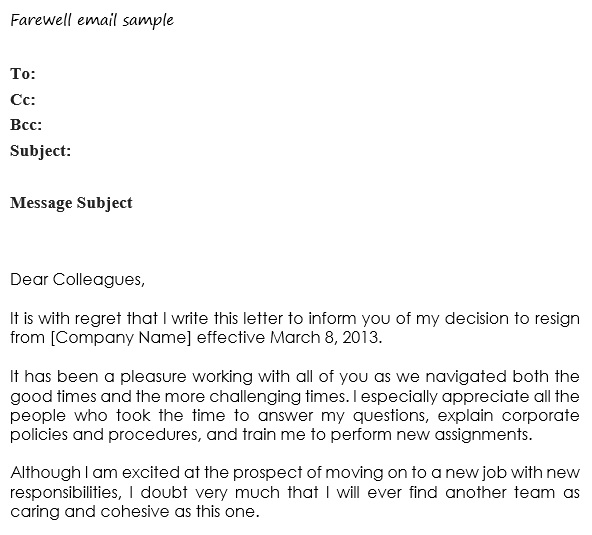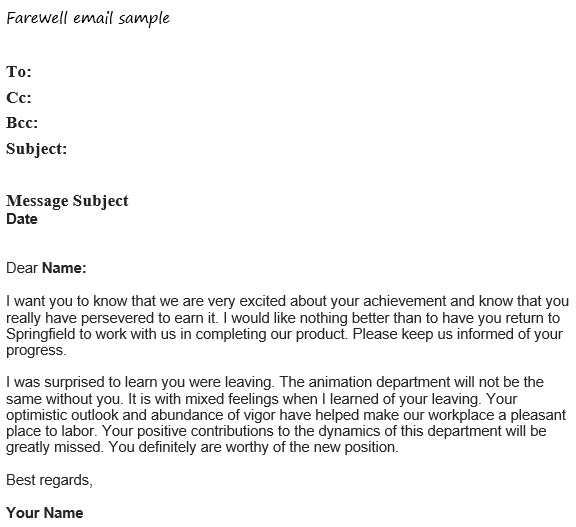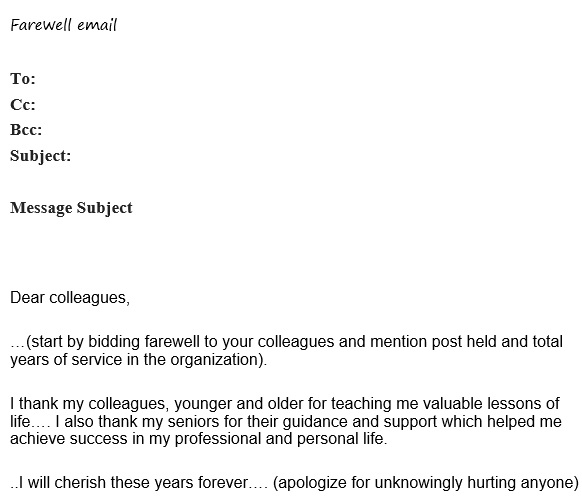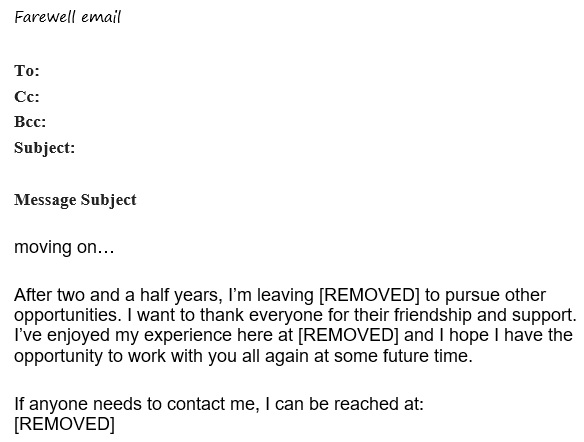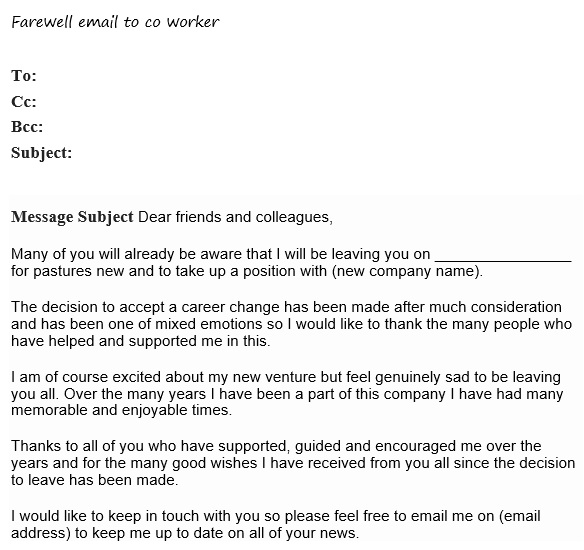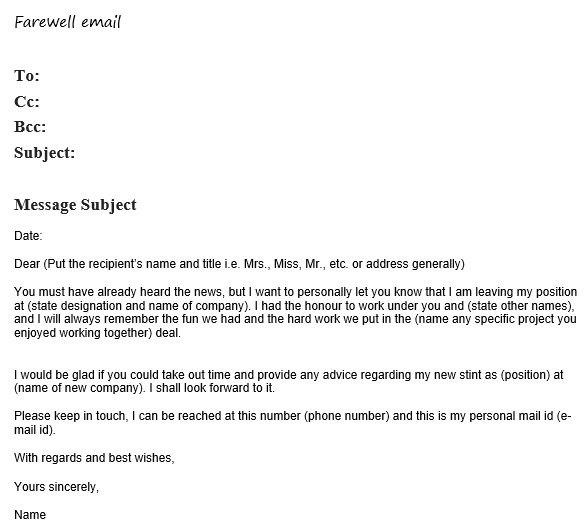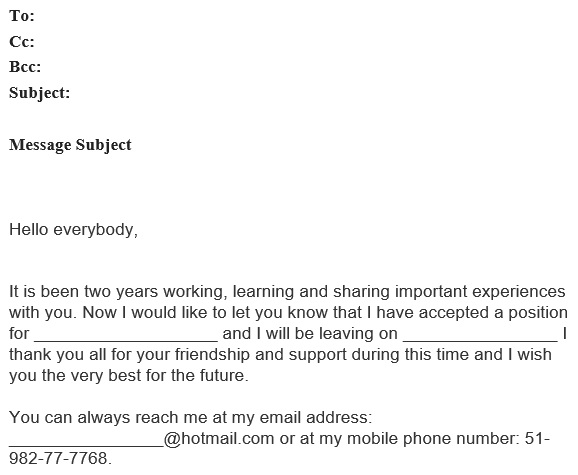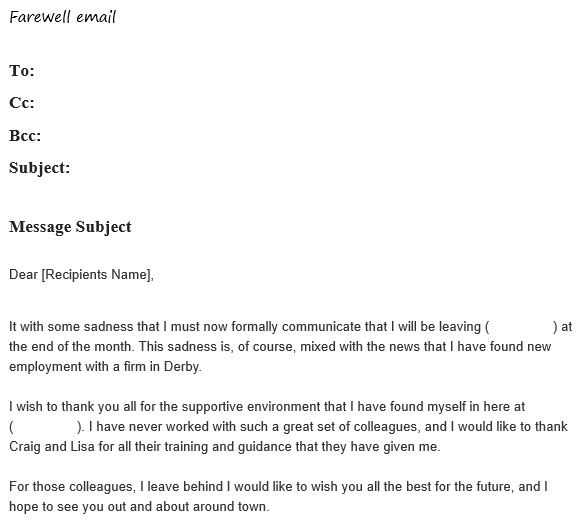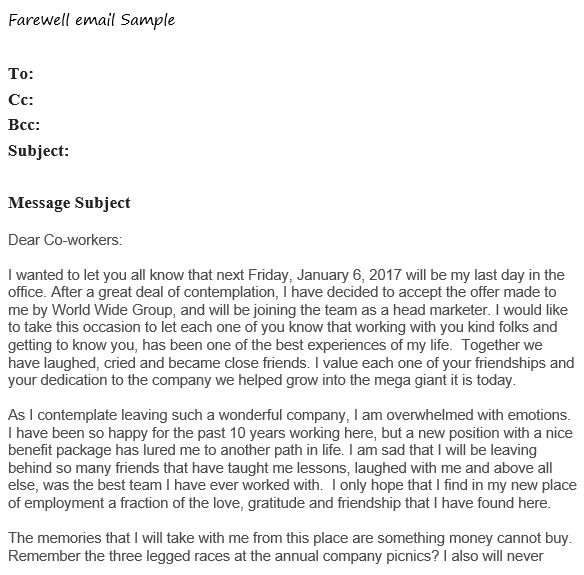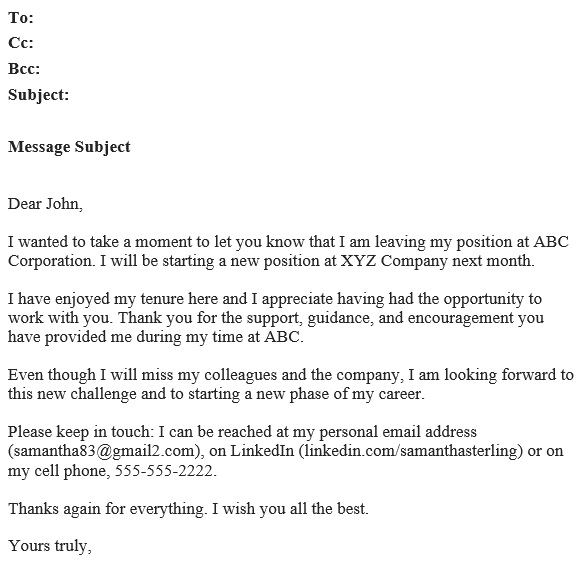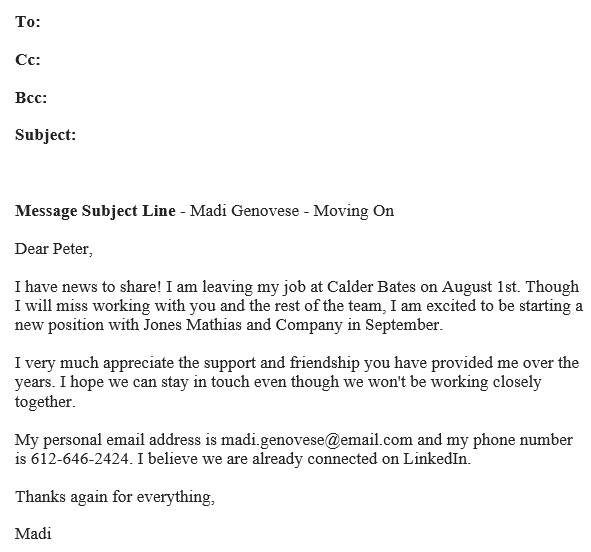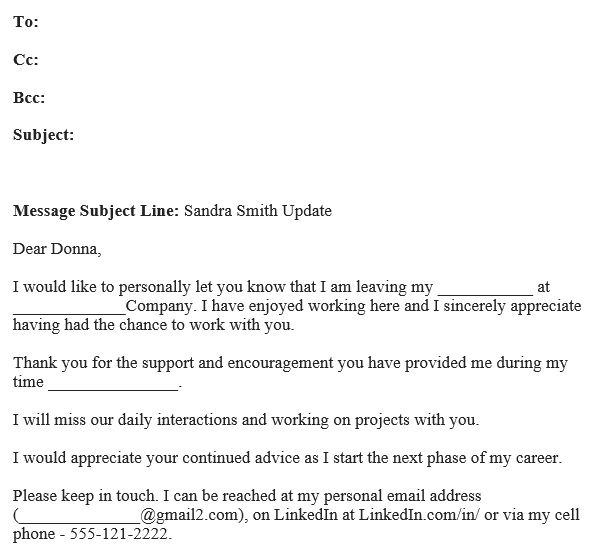A farewell email template is used when you find another job and you want to formalize your goodbyes. You can do this to stay in touch with those you work with all at once. To maintain a connection outside of the workplace, you can say goodbye by providing your contact information.
Moreover, a farewell email to colleagues should be well-formatted to ensure that the email is received well and read by all recipients. You can see a farewell email sample in order to make it well-written, easy to read, and well-received. It will also help you a lot when you don’t have the right words to say farewell to colleagues and coworkers.
Table of Contents
- 1 Time to send a Farewell Email:
- 2 Whom should you send the Farewell email?
- 3 Components of a Farewell Email:
- 4 What shouldn’t be included in a farewell email?
- 5 Considerations for writing farewell email:
- 6 How a farewell email to bosses is different than to coworkers?
- 7 Conclusion:
- 8 Faqs (Frequently Asked Questions)
Time to send a Farewell Email:
You should send a farewell email to your colleagues at a time that falls close to your official final day at work. The perfect time is about two to three days before your final day. This will provide time to the people to come up to you and to say their final goodbyes.
Whom should you send the Farewell email?
Whom you send your email to depends on your workplace. If you are working in a large organization then there is no need to send out a mass email about your leaving. Don’t send emails to the people who haven’t interacted or worked with you. For your supervisors or bosses, you have to compose a separate professional and formal farewell letter. The following people should get a farewell email from you;
- Close colleagues
- Coworkers or friends
- In a small office anyone.
- Your trainers
- People who have been a mentor to you
- Those individuals who have worked with in the past and aren’t in the same office but still work for the company.
- People whom you have worked on projects with
Components of a Farewell Email:
Sender announcement:
Fill out the subject line so that everyone will recognize you. The email should be written in a semi-formal manner. In the sample, you can see the word “From,” where you have to enter your name. You can include your first name or your first name along with your surname.
Farewell email Subject lines:
If you are sending a formal letter then the subject line appears just under your name. In this area, marked with a “Re:” meaning “regarding” and enter something catchy here. This is the place where the tone of your email is defined. So, if you use serious tone here, you have to keep using serious tone for the rest of email. If you are using a humorous light tone then the farewell email follow that tone as well.
The addressees:
This is the section that points out who you are connecting with. Again, your tone is important. If you are using semiformal tone then you can say that “To all my superb colleagues,” or “To my coworkers and friends.” However, if you want to be funny then you can say that “To the people who’ve had pleasure working with me.”
For Colleagues, the Body of the Farewell Email:
During writing a letter, keep in mind that you have to maintain professionalism even if you joke a bit and take a light tone. The letter indicates that you are leaving in a tactful and timely manner. By composing an email, you don’t have to talk to each person on an individual basis. However, those employees who are very close to you, you have to give them a face to face notification of your decision to leave. In such situation, before sending out a mass email, you should notify your coworkers face-to-face. It should include the following;
- Precise information about the position you held
- Your duration on the job
- A concise reason that why you are leaving
- The memories you have at the workplace
- Your official last day on the job
- A light joke but be careful you intention is not to hurt anyone’s feelings.
For Coworkers, the Body of the Farewell Email:
The body of the letter includes your farewell message. You should use concise writing to make the fact that you are leaving. You don’t want to bore the readers by composing the lengthy email. The body should consist of the following;
First paragraph:
In the first paragraph, you have to say that you are leaving. You can also state that where you are headed and your decision to leave. Never include any negative comments about the employer or any of your colleagues. You should provide details about your final day so that they can plan for a time to give you a personal farewell if they want.
Second paragraph:
In this paragraph, you can express your a bit of personal gratitude. You should thank to everyone who has helped you along the way. It is important to mention the name of your mentors specifically when you thank them. Also, indicate you will be missed them as you move on in your career. If there are a few colleagues who are influential in your life then name them directly. You can also thank them with personalized thanks.
Third paragraph:
This is part is wrap up really. Inform everyone where you are going and you can stay in touch with them by providing your contact information. Here you should share your personal email address, contact number, and LinkedIn URL. Also, motivates others to keep in touch.
Final paragraph:
The final paragraph should be short but sweet. Once again, thanks to everyone not only for reading your email but also being such wonderful coworkers.
What shouldn’t be included in a farewell email?
You should avoid the following things in your farewell emails;
- Lengthy emails: don’t send lengthy emails as not everyone has time to read ramble emails.
- Quotes: make use of your own words, don’t copy other words.
- Promoting your new business: it isn’t relevant to promote your business in the farewell email.
- Embarrass anyone: keep in mind that this isn’t a place to share funny stories.
Considerations for writing farewell email:
For ease of completion, splits down a farewell email into parts. You just take the available farewell email samples as a reference not copy them thoroughly. Use your own words to say your goodbyes and make sure that your farewell message is far more meaningful. Keep things simple in farewell email to coworkers. Don’t make it too heavy or overly dramatic as it is just for delivering a simple goodbye message and a request to keep in touch. Maintain professionalism always in your farewell email.
How a farewell email to bosses is different than to coworkers?
It is a different thing to say farewell to bosses, CEOs, or those in authority at the workplace. Before writing a farewell to anyone, you have to consider who you are addressing. The farewell email to bosses is different than to coworkers in the following ways;
- Make sure your tone is professional while writing to your bosses. In this type of farewell communication, joking might not be appropriate.
- For your bosses leadership and assistance, you have to be cordial and thankful to them.
- Keep your email concise, simple, and clear.
- Only write to them whom you interact on daily basis.
Conclusion:
In conclusion, a farewell email template serves as a guide for you when you are composing your farewell email. It also helps you a lot in case you don’t have the right words to say goodbye to your colleagues or coworkers. Furthermore, you should maintain professionalism throughout the letter and being kind with your words. Include the factors that will shape the success of your inter-business communications.
Faqs (Frequently Asked Questions)
You can leave a warm glow at your last place of work by writing a goodbye email to coworkers. This also leaves the door open for contact in case there be any mutually beneficial opportunities in the future.

